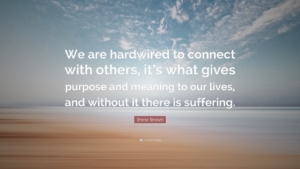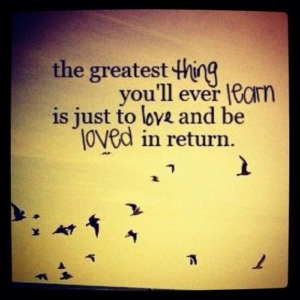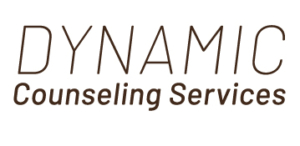I have a social work crush. A few years back, when I was first starting out as a social worker, I discovered this TED Talk:
Not only did I completely connect with Brené Brown’s ideas, I found a role model for the type of social worker I wanted to be, the kind that could create/discover an idea that everyone could benefit from. Brené talks about wanting to study connection and vulnerability as an attempt to solve her own struggles with those things. I think most social workers come to the profession with a secret goal to fix something in themselves, in their families, in their neighborhoods, or in their communities. They come to social work because they see themselves in the populations they serve, and they want to make a difference.

The longer I do this work, the more I fully embrace Brené’s ideas about vulnerability, shame, and the need for connection. In fact, the biggest problem I see most of my clients face is isolation — they lack the natural supports that other people have, the proverbial village that helps raise a child into adulthood. Without a natural village, a village of professionals and systems come in to support the individuals and families.
I spend a lot of my time with clients trying to connect them to systems and seeing if they can possibly find a way to connect, or reconnect with those supports they do have, build on the connections they already have in their families, friends, and communities. The heart of my therapy practice is about strengthening connections.
Then there is this article on drug addiction:
Professor Peter Cohen argues that human beings have a deep need to bond and form connections. It’s how we get our satisfaction. If we can’t connect with each other, we will connect with anything we can find — the whirr of a roulette wheel or the prick of a syringe. He says we should stop talking about ‘addiction’ altogether, and instead call it ‘bonding.’ A heroin addict has bonded with heroin because she couldn’t bond as fully with anything else.
So the opposite of addiction is not sobriety. It is human connection.
 Connection, again, is key. But the inherent struggle of connection is that it presupposes that you are worthy of it. Many of the individuals and families I encounter don’t feel worthy of connection. It’s part of what keeps them isolated (I strongly recommend you watch the above video in its entirety).
Connection, again, is key. But the inherent struggle of connection is that it presupposes that you are worthy of it. Many of the individuals and families I encounter don’t feel worthy of connection. It’s part of what keeps them isolated (I strongly recommend you watch the above video in its entirety).
Much of the work I do is about helping people connect back to the best part of themselves in preparation for connecting with others.
